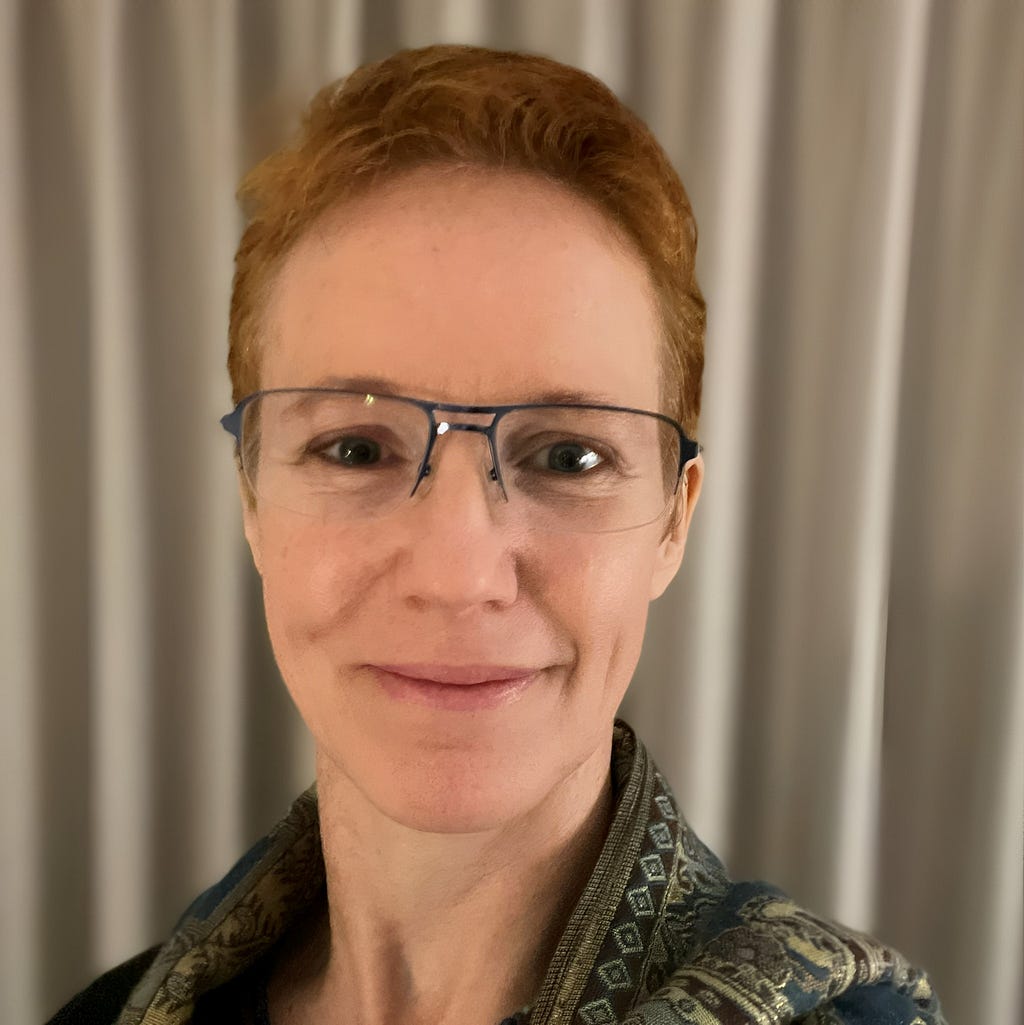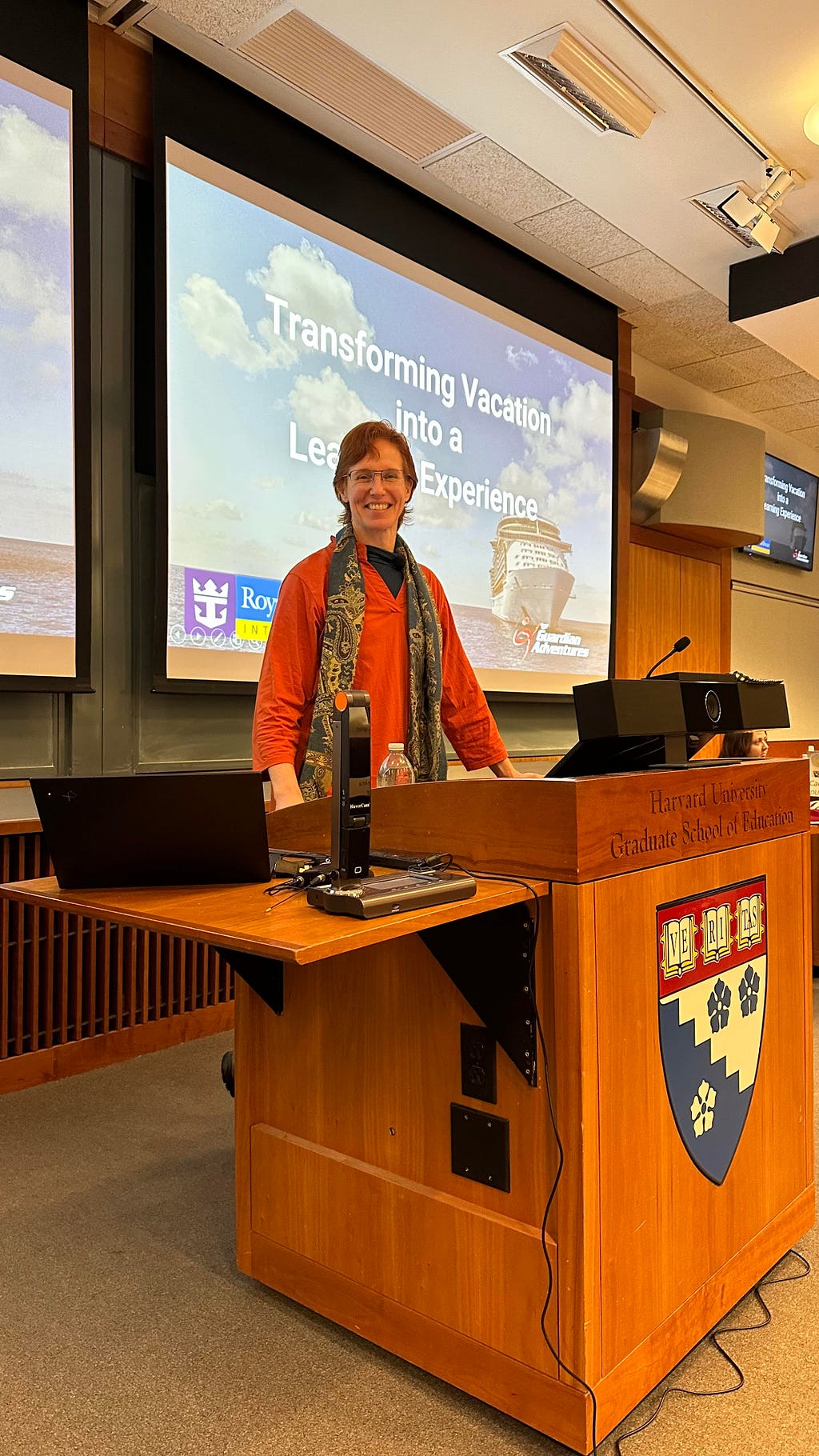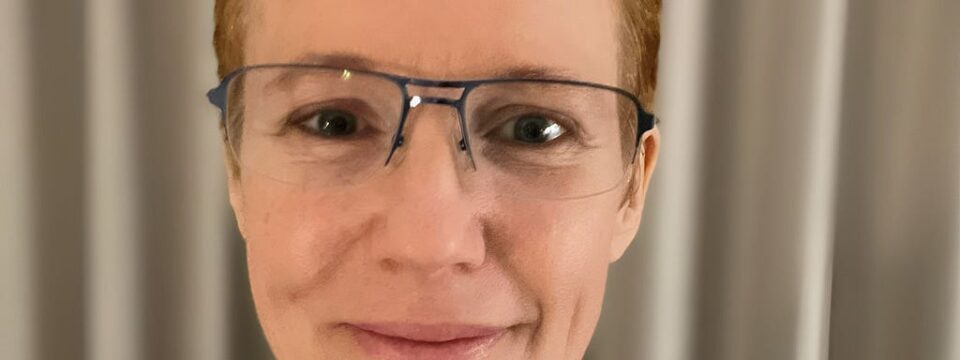How Meghan Gardner of Cultura Connector Is Helping To Make the Entertainment Industry More Diverse and Representative

I wish someone had told me that the resources required for out-reach to cultures and helping people become educated in the business aspect of being a cultural advisor would be much more than I expected. There are estimated to be more than 7000 languages, 4000 religions, 3800 cultures, and 650 ethnic groups around the world. This is going to be a lifelong endeavor to help these groups be authentically represented.
As a part of my series about leaders helping to make the entertainment industry more diverse and representative, I had the distinct pleasure of interviewing Meghan Gardner.
Meghan is the founder of CulturaConnector.com, a 501(c)3 non-profit dedicated to Cultural Media Matchmaking which helps countries and cultures advise companies on the proper representation of their culture in media and education. Along with her board of advisors composed of women from all over the world representing cultures spanning from the Taino (an Indigenous group predominantly found in the Caribbean), Mongolia, Mauritius, Jamaica, Japan, and more she developed a free global directory for cultural advisors. Meghan has worked with Fortune 500 companies, major universities, and government agencies in providing cultural advisors for their projects. Meghan is also an annual guest lecturer and panelist at Harvard Graduate School of Education on the topic of informal education and cultural representation in media.
Thank you so much for joining us in this interview series! Can you tell us a story about what brought you to this specific career path?
I have been creating educational adventures and media for more than two decades. When I wanted to explore a new culture in these programs, I would spend months finding a cultural advisor to hire so that I could make sure that the program authentically represented their lived experience. It seemed to me that reading or watching videos about a culture was terribly insufficient and so having a primary source who could work with my company or my client was the most logical step. I was surprised to discover that this was not common practice for companies much larger than my own. After seeing too many books, movies and video games that misrepresented cultures, I decided to create a directory that would not only make it easier for me to locate cultural advisors, but for any company to do so.
Can you share the most interesting story that happened to you since you began your career?
My for-profit company, Guardian Adventures, creates live action educational adventures for Royal Caribbean’s guests. I talked to them about Cultura Connector, and how they could work with the nonprofit to find Indigenous cultural presenters for their cruise ships to educate their guests about the Indigenous cultures in the area of their ports. They have since decided that they would like Cultura Connector to locate Indigenous presenters for each of their 160 ports around the world.
Can you share a story about the funniest mistake you made when you were first starting? Can you tell us what lesson you learned from that?
I have learned so much from the cultural advisors that I work with. Thankfully, they are quick to correct me on my own assumptions based on the inaccurate media representation of their cultures. When I first met one of my Indigenous cultural advisors, Claudia Fox Tree, who is a Taino-Arawak educator, I asked her to tell me about her culture’s myths. She said, “I’m just curious… would you ask a person who was Christian to tell you about their Christian myths?” I immediately realized my mistake. But she wasn’t upset… she just wanted me to understand the disparity between how the media views her culture and the prevalent culture in the USA.
Claudia then went on to explain that she found it interesting that Christians have no issue with believing that Moses talked to a burning bush… but somehow a talking animal from Indigenous cultures is “unrealistic”. It was a very eye opening discussion for me and one I repeat often so that others can learn what I learned.
Ok, thank you for all that. Let’s now jump to the main focus of our discussion. Can you describe how you are helping to make popular culture more representative of the US population?
Many pop culture creators, such as media companies — and by media, I mean movies, TV, video games, text books, software developers, and so many more — state that they would consider using a cultural advisor if they knew where to find one. I understood the excuse because when I wanted to work with a cultural advisor, it took me months to locate one that was not just educated in their culture, but an active member of that culture. Since this was the most common reason provided by the media developers and producers that I asked, I decided to create this free directory so that the barrier to finding a cultural advisor was removed. Companies would now have the resource they needed and no reason to not use it.
As well, by encouraging cultural advisors, performers, and artists to list on the directory we hope to not only make their representation more obvious and accessible, but also improve the economy for those cultures when they are hired by media, recreation, and education companies. Representation is important, but cultures also need to benefit financially when companies are profiting from their culture.
Can you tell us a story about a particular individual who was impacted by the work you are doing?
When I worked with Claudia Fox Tree to create a free educational adventure that teachers can use in their classroom with their middle and high schoolers, we were approached by a summer camp for refugee children. They asked permission to convert the entire program into Spanish and run the adventure for their campers next summer. One thing that was unique about this adventure is that it focused on the rich and highly efficient Taino culture before the arrival of Christopher Columbus. Many text books and lessons only discuss the Taino after they were decimated and enslaved by Christoper Columbus, as if their culture was defined by colonialism.
Since the summer camp had many children from the Taino culture, they were excited to share this experience with them. As well, Claudia ran this program within her tribal council and they thought it was fun, engaging, and accurate, and were eager for it to be shared within the wider community.
As an insider, this might be obvious to you, but I think it’s instructive to articulate this for the public who might not have the same inside knowledge. Can you share three reasons with our readers about why it’s really important to have diversity represented in Entertainment and its potential effects on our culture?
I would clarify your question a little first: It’s really important to have diversity AND appropriate representation of that diversity in Entertainment.
- It doesn’t help a culture to have members being cast in roles that are not an authentic representation of that culture. When Mongolians are always represented in the media as the “invading hordes” or only as a nomadic people, it limits our understanding about the contemporary and modern culture and city life that the majority of Mongolians enjoy. Sometimes misrepresentation leads to stereotyping and sometimes it is cultural appropriation. Stereotypes distort the original culture and cultural appropriation removes the original culture’s meaning from the thing being used by the dominant culture, the one with the power to redefine the meaning.
- This misrepresentation also perpetuates insulting and racist terms or jokes. An example is the use of the term Mongol when referring to someone who has Down syndrome or a person who is seen as uncultured. Mongol is a term that relates to the people and their language. It should never be used any other way. But this won’t happen until media and entertainment widen their representation and work to make sure that this representation is appropriate.
- Members of marginalized cultures, in particular, who are being represented in media should be able to financially benefit from companies that are profiting off the portrayal of their culture. So when a company like Disney hires people from the culture they are portraying to not only act in or do voiceovers for the movie, but also to be their animators, costume designers, editors, musicians, and more, then members of that culture benefit financially from the movie.
Can you recommend three things the community/society/the industry can do to help address the root of the diversity issues in the entertainment business?
- If you have a character who is of a specific real life (not fantasy) culture, religion, race, ethnicity, or who has a disability, then hire an advisor with that lived experience and listen to them. Give them the authority to correct the script writers or authors or game designers when that lived experience is not being represented appropriately.
- Do your homework. Yes, it takes effort and time to locate advisors with the lived experience your project represents. And you will likely have to make edits that you don’t want to make because in your mind, it changes the entire project. But imagine being the person who you are misrepresenting and not letting them have a voice or the power to make the story or experience authentic for all involved. Let yourself feel what it would be like to constantly be misrepresented or not represented at all.
- Collaborate with more people from different cultures and dare to truly partner with them in your creation. It takes courage to challenge the expectations of your audience who have been fed misinformation for so long. But authentic representation means getting uncomfortable for those who have been the decision makers for so long, including how to tell someone else’s story. Why go at it alone? Collaborate and watch your projects shine with a new perspective.
How do you define “Leadership”? Can you explain what you mean or give an example?
I define leadership as the act of fulfilling a vision in a way that inspires a sense of belonging for each participant represented in that vision.
An example is that I founded Cultura Connector out of frustration about the misrepresentation of my friends and family members with lived experience that is marginalized by media and entertainment. However, I am a white woman. So I do not lead this organization. My board makes all of the decisions and I enact them with their assistance. They approve the messaging (even this interview) and the images. They are the drivers and I am in the passenger seat playing a support role. I keep the vehicle fueled and moving forward, but they choose where we go and how we get there. This is because my board and other people who are misrepresented are the reason for this vision.

What are your “5 things I wish someone told me when I first started” and why?
- I wish someone had told me that writing for grants (even small grants) is a skill set that is developed and earned through countless rejections. I have applied for more than 10 small grants and have yet to convince one organization that Cultura Connector is a worthwhile recipient. I’m still learning and I will persevere… but it can be demoralizing at times.
- I wish I had known that there would be pushback on this vision for representation. I was ignorant to the number of creators who think that partnering with an advisor would “limit their creativity” or “take too long.” People want to profit off a culture without letting members of that culture have a say in how they are represented.
- I wish someone had told me just how hard it is to locate cultural advisors for our directory. Right now, I actually have more media clients interested in working with cultural advisors than advisors who are available. Also, many people who have a great deal of lived experience within a culture or subculture don’t have any experience articulating their perspective and so they don’t bother to enlist in the directory. But you have to start somewhere.
- I wish someone had told me that considering accessibility in your website means building the site from the ground up with this in mind. I have learned so much in the past year about equal accessibility for diverse audiences and how important it is. So now we are working to make the changes which would have been much less intensive if the site were designed that way from the beginning.
- I wish someone had told me that the resources required for out-reach to cultures and helping people become educated in the business aspect of being a cultural advisor would be much more than I expected. There are estimated to be more than 7000 languages, 4000 religions, 3800 cultures, and 650 ethnic groups around the world. This is going to be a lifelong endeavor to help these groups be authentically represented.
You are a person of enormous influence. If you could inspire a movement that would bring the most amount of good to the most amount of people, what would that be? You never know what your idea can trigger. 🙂
I feel like Cultura Connector is already doing that. When a company the size and influence of Royal Caribbean decides that honoring the Indigenous cultures of their ports around the world is important, more companies begin to follow their lead. But I think this movement won’t be possible until more people enlist in the directory and are willing to be compensated for their perspective on their lived experience or culture.
I am confident that once this becomes the new norm for media, entertainment, and education, we will see a big shift in the general populace’s understanding of marginalized cultures. From this exposure, more and more people will be willing to challenge their mind’s internal model and actively seek out media that has authentic representation.
Can you please give us your favorite “Life Lesson Quote”? Can you share how that was relevant to you in your life?
Ironically, my favorite life lesson comes from my volunteer work in hospice. When people invite me into their end of life process and share their stories with me, I am the recipient of what I think is the most tested wisdom humankind can offer. Of all the stories that have been shared with me, I think my favorite quote came from a World War II veteran. She enlisted because her brothers and father served and she felt like women should serve as well. She once told me that she didn’t need to be remembered after she died. She knows she made a difference while she was here. And that difference will live beyond her life. To her, that is all that mattered.
I agree. I want to make a difference while I am gifted with this time. And when my dying time comes, that difference is and will be enough.
Is there a person in the world, or in the US whom you would love to have a private breakfast or lunch with, and why? He or she might just see this, especially if we tag them. 🙂
There are not many famous people who would make me giddy upon meeting them. But Viola Davis would be one of them. I loved her long before Woman King… but that movie just blew my mind. She had to overcome so many hardships and break through countless ceilings to succeed in her life and career. She is fierce and smart and kind. She is authentically herself and she earned every step of her success. She is a powerful inspiration to me.
How can our readers follow you on social media?
Facebook: https://www.facebook.com/culturaconnector
Instagram: https://www.instagram.com/culturaconnector/
Twitter: https://twitter.com/CulturaConnect
LinkedIn: https://www.linkedin.com/company/cultura-connector
This was very meaningful, thank you so much!
Thank YOU for exploring this important topic and raising awareness about the importance of authentic representation in media and entertainment.
How Meghan Gardner of Cultura Connector Is Helping To Make the Entertainment Industry More Diverse… was originally published in Authority Magazine on Medium, where people are continuing the conversation by highlighting and responding to this story.
